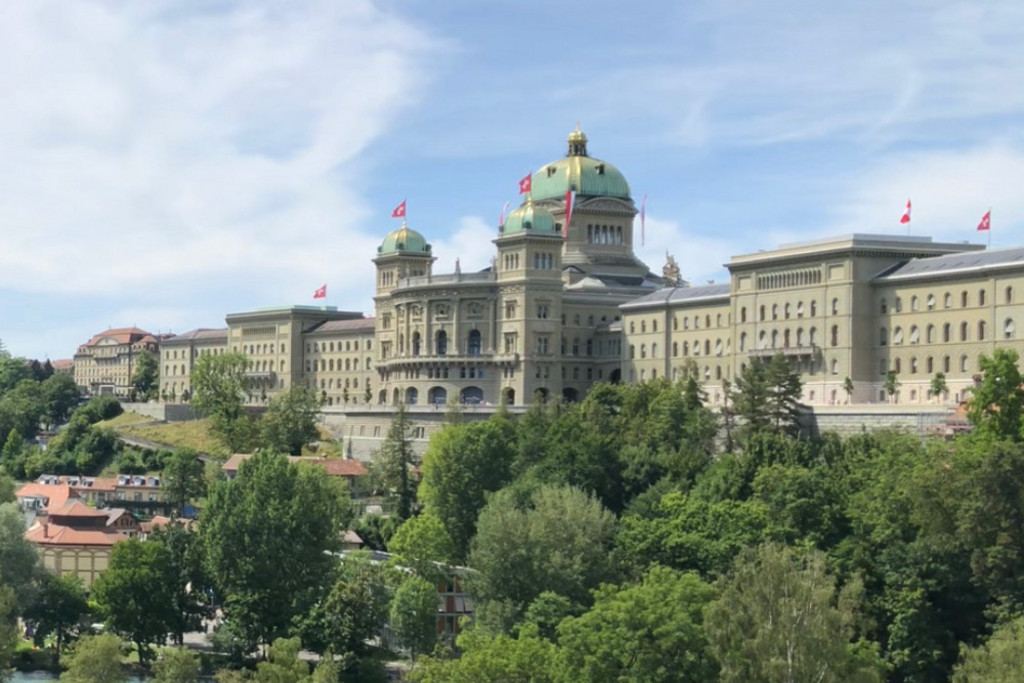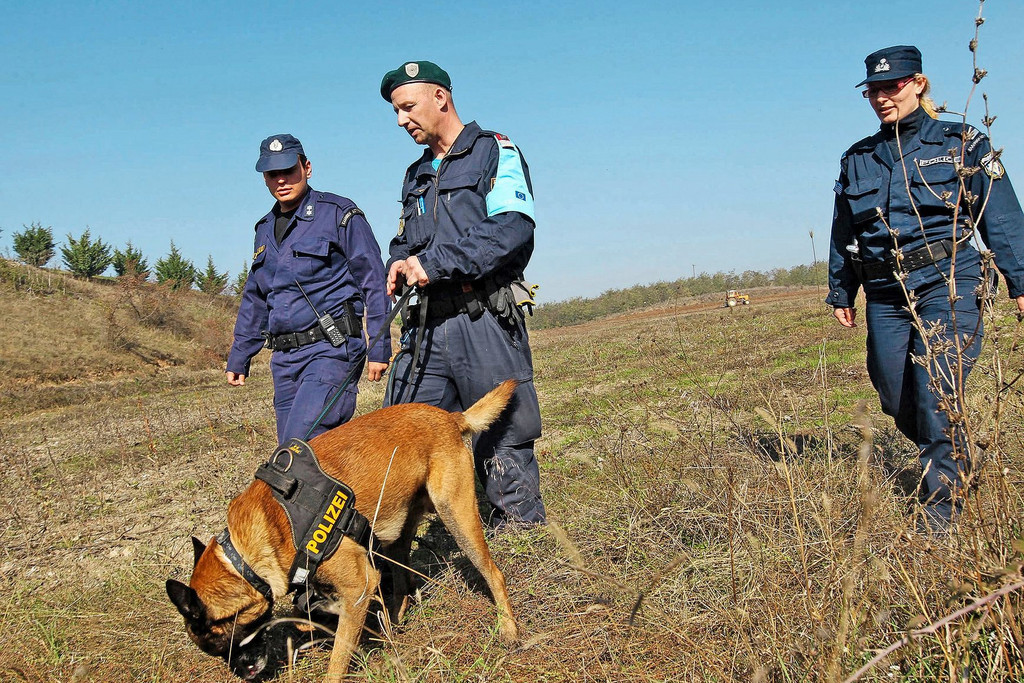“The first shall be the last” – The Federal Assembly for once defied this expression of biblical origin. It was the early frontrunner who was elected as the new member of the Federal Council in only the second round of voting on 20 September, winning 125 votes, just over the absolute majority of 123 required. Ignazio Cassis, the FDP National Councillor from Ticino, emerged as the favourite to succeed Federal Councillor and Foreign Minister Didier Burkhalter, who announced his retirement in mid-June, and managed to hold this position until the end.
This was certainly not a foregone conclusion. Candidates named early often fall away during the nomination and voting procedure. Cassis also had to contend with competition from within his own party. The FDP parliamentary group presented Parliament with a choice of three candidates. In addition to Cassis, it put forward National Councillor Isabelle Moret from Vaud and Cantonal Councillor Pierre Maudet from Geneva. Maudet, an outsider as a non-member of the national parliament, conducted a particularly active campaign not just in parliament as the voting body but also in the media. He primarily highlighted his experience as an executive board member and abilities as a dynamic and unconventional figure. He achieved a respectable result, winning 90 votes in the decisive round of voting, while Isabelle Moret was well beaten, ending up in third place with 28 votes.
Shift to the centre-right
The election of Cassis has seen the Federal Council shift to the centre-right. The left-green parties never disputed the FDP’s entitlement to the Federal Council seat but favoured Isabelle Moret and Pierre Maudet. Cassis was too right-wing and business-friendly on various issues for the SP who were particularly critical of his lobbying for the health insurance schemes. The SVP, on the other hand, regards the new Federal Councillor as the guarantor of a right-wing, conservative block of four in government. The SVP had continually criticised Didier Burkhalter for sometimes making common cause with the two SP members, Alain Berset and Simonetta Sommaruga, as well as CVP Federal Councillor Doris Leuthard.
A rigid block mentality is essentially foreign to collegial government as changing majorities are part and parcel of the system of concordance and search for consensus. However, it is anticipated that Federal Council decision-making will now reflect centre-right policy more often with Ignazio Cassis in office, especially in terms of policy on finance, economic affairs and Europe. The economically liberal Cassis nevertheless also holds liberal views on some social policy issues. For example, he supports the decriminalisation of the use of cannabis and cocaine.
As Federal Councillor, Ignazio Cassis will take over the Federal Department of Foreign Affairs from the retiring Didier Burkhalter. Despite speculation prior to the allocation of the departments, none of the six existing Federal Councillors wanted to take over a new ministry. Cassis is therefore also responsible for the thorny EU portfolio. He has always asserted that the bilateral treaties with the EU are essential but has nonetheless hinted at pursuing new approaches on the contentious institutional framework agreements.
Questions of identity and symbolism
At Federal Council elections it is never just about the substance on political issues in the narrow sense nor simply whether the candidate possesses the necessary personality traits, intellect and leadership skills. At least as much importance is attached to issues of identity and symbolism, in other words having the “right” composition of the seven-strong body in terms of representing gender, language and culture and the regions and cantons. With the election of Ticino-born Ignazio Cassis, the United Federal Assembly has this time given top priority to the linguistic region aspect. Italian-speaking Switzerland is represented in national government for the first time since Flavio Cotti stepped down in 1999. He becomes the eighth Federal Councillor from Ticino since 1848.
Having one member from Ticino, two from French-speaking Switzerland and four German-speaking Swiss on the Federal Council ideally embodies the spirit of federalism as the federal Constitution requires the different parts of the country and linguistic regions to be represented appropriately. In contrast, the gender balance is far from ideal. Women are under-represented in relation to the proportion of the population they make up, with just two Federal Councillors – Doris Leuthard and Simonetta Sommaruga. Women have only ever once made up the majority of the Federal Council during a brief period between 2010 and 2011 with Micheline Calmy-Rey (SP), Doris Leuthard (CVP), Eveline Widmer-Schlumpf (BDP) and Simonetta Sommaruga (SP). The gender issue is therefore set to play a key role the next time a member of the government steps down, or at the latest when the Federal Council is completely re-elected at the end of 2019.
The new party-political norm
Federal Council elections always attract attention from the Swiss media. Its members are effectively like “Swiss royals”, as professor of history and Federal Council researcher Urs Altermatt recently referred to the seven-strong body in an interview, and are figures who have a status of prominence extending far beyond their political significance. However, the most recent election was largely a routine affair apart from in terms of region and personnel. For the first time since the late 1990s, a Federal Council election was held without any party-political turmoil. There had even been minor skirmishes during the election of Guy Parmelin (SVP) in December 2015 after Federal Councillor Eveline Widmer-Schlumpf (BDP) stepped down. A new magic formula (2 SVP, 2 FDP, 2 SP and 1 CVP) has now established itself. Nobody challenged the FDP’s entitlement to the seat.
A long period of instability has now finally come to an end. It began with the SVP’s rapid rise to being the best-supported party in the 1990s, which coincided with the FDP and CVP losing votes. The SVP demanded two Federal Council seats in the form of an ultimatum. It got these in 2003 with the spectacular election of Christoph Blocher at the expense of CVP Federal Councillor Ruth Metzler. However, the SVP’s father figure was just as spectacularly de-selected in 2007 and replaced by his party colleague Widmer-Schlumpf from Grisons. This in turn resulted in this Federal Councillor splitting from the SVP to form the BDP and this small party’s eight-year stint in national government.
The protracted wrangling over the body’s party-political composition severely tested the system of government for years. The Swiss system of government – famed for its stability and a key pillar of Switzerland’s model of success – has now weathered the storm.
Ignazio Cassis
Ignazio Cassis, who was born in 1961, is married and lives in Montagnola. He studied medicine at the University of Zurich and obtained his doctorate in medicine in Lausanne. From 1988 to 1996, he worked as a junior doctor practising surgery, internal medicine and social and preventive medicine. From 1996 to 2008, he served as Ticino’s cantonal medical officer and from 2008 to 2012 as the Vice-President of the Swiss Medical Association (FMH). Until his election to the Federal Council, he was president of the care home association Curaviva and president of the health insurance association Curafutura. He joined the National Council in 2007 and was re-elected twice. From 2015, he was chair of the National Council’s Social Affairs and Health Committee and president of the FDP parliamentary group in the Federal Assembly.
Picture The newly elected Federal Councillor Ignazio Cassis, the 117th member of the Federal Council, swears an oath to the United Federal Assembly. Photo: Keystone





![[Translate to en:]](/fileadmin/_processed_/d/2/csm_Revue_202204_Huehnerfarm_SH-Reportage_3074_7901ca94df.jpg)




Comments
Comments :
À part cela, j'ai trouvé un peu dommage que la candidature féminine tessinoise ait été écartée par les Tessinois eux-mêmes. Vaincre sans difficulté, c'est triompher sans gloire.